No reptile is more fascinating than the chameleon. With its stunning appearance, it reminds us of ancient dragons. In fact, these fascinating creatures have been roaming the earth for 60 to 100 million years. Their ability to attract attention and almost blend into their surroundings with camouflage makes them particularly unique in any terrarium. Chameleons belong to the class Reptilia, order Squamata, family Animais. They are small reptiles with scaly bodies. The family Animais is divided into two subfamilies: Animae and Animae.

There are about 161 species of chameleons, most of which are found in sub-Saharan Africa. Chameleons are able to change their color to match their environment to hide from nearby predators.
Chameleon Family Branches
Common Chameleon
Veiled Chameleon
Jackson's Chameleon
Panther Chameleon
Brookesia nana
Tiger Chameleon
Parson's Chameleon
Smith’s Dwarf Chameleon
Chameleons belong to the class Sauropsida, order Squamata, and family Chamaeleonidae, which includes about 161 species. Most are native to sub-Saharan Africa and Madagascar, with some in Asia and Europe. The family is divided into two subfamilies: Chamaleoninae (8 genera, including Archaius, Bradypodion, Calumma, Chamaeleo, Furcifer, Kinyongia, Nadzikambia, Trioceros) and Brookesiinae (Brookesia, Rieppeleon, Rhampholeon). Chameleons are celebrated for their color-changing ability, prehensile tails, and unique hunting style.
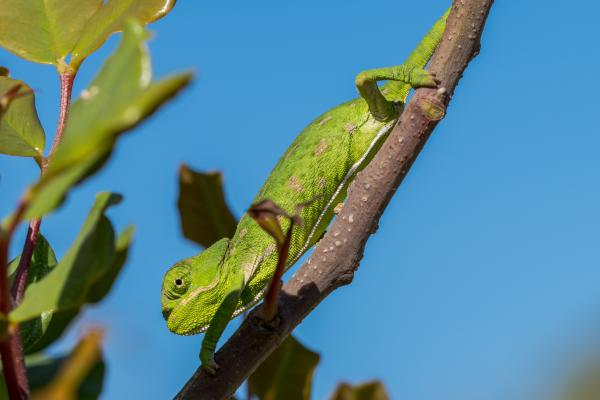
Widespread across the Mediterranean, especially southern Spain. Reaches about 30 cm in length, adapted to pine forests and Mediterranean scrub. Features opposable toes and a prehensile tail. Known for its vivid green color and superb camouflage.
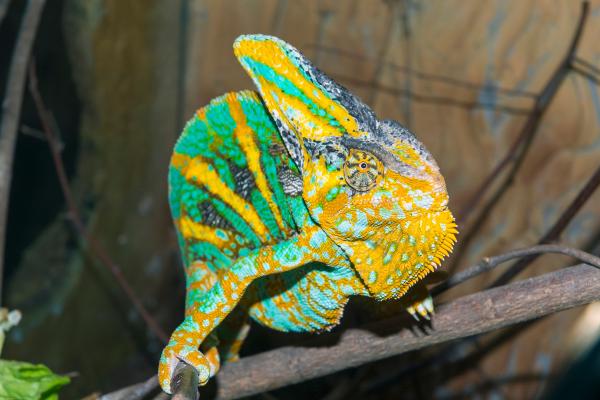
Also called the Yemen chameleon, it originates from Yemen and Saudi Arabia. Males sport a prominent casque (helmet). Primarily insectivorous, but supplements its diet with leaves, flowers, and fruits for hydration. Highly active and popular in the pet trade.
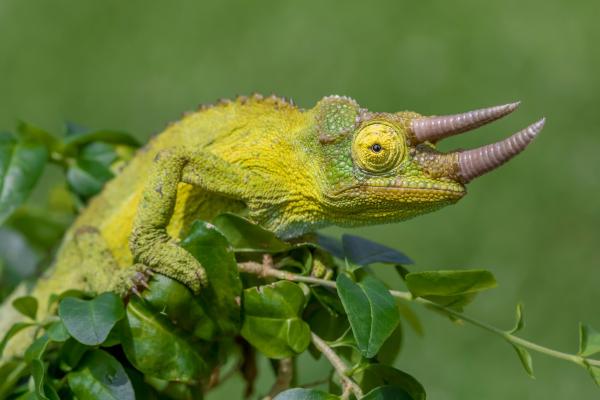
Native to East Africa, males are famous for their three facial horns. Inhabit cool, moist highlands in Kenya and Tanzania; introduced to Hawaii in the 1970s. Females give birth to 8–30 live young after 5–6 months of gestation.
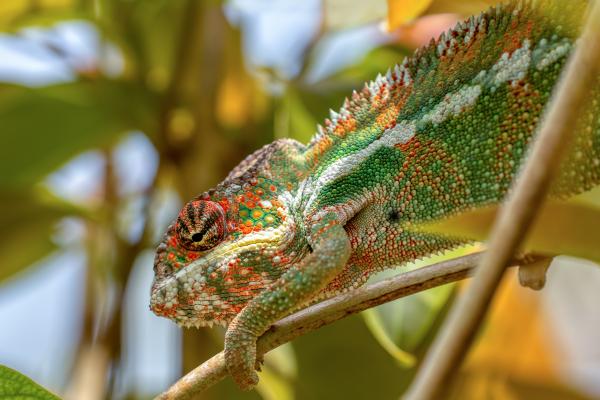
A vibrant, large chameleon native to Madagascar. Displays a stunning range of colors—blue, green, red, pink, or white, depending on locality. Males can reach 50 cm and are among the largest and most visually striking chameleons.
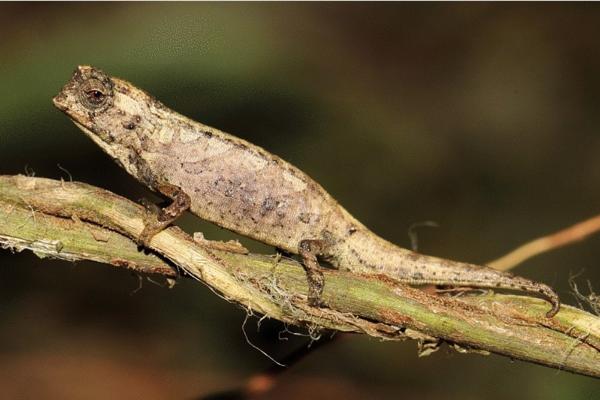
One of the world’s smallest chameleons, described in 2021, and endemic to northern Madagascar’s rainforests. Rarely exceeds 2.5 cm in length. Females are slightly larger, likely for egg-carrying. Lives on the forest floor in leaf litter.
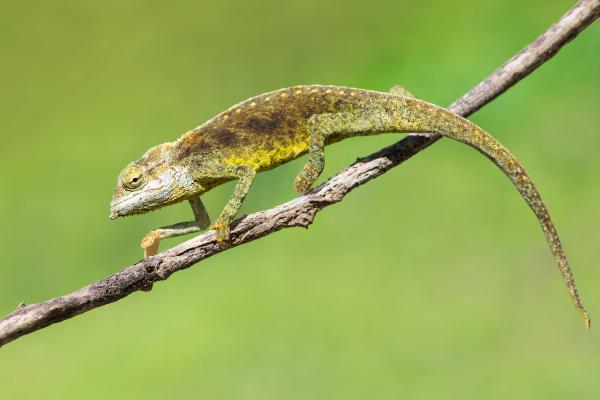
The only species in its genus, found exclusively on the Seychelles islands. Can reach 16 cm and thrives in primary and secondary forests with dense vegetation. Distinguished by its tiger-striped markings.
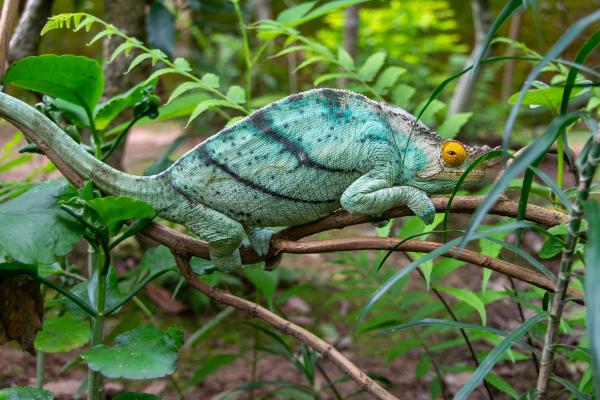
The most iconic and one of the largest chameleons, endemic to Madagascar’s lush forests. Grows up to 80 cm long, rivaling the Furcifer oustaleti in body mass. Exhibits a range of greens, blues, and yellows.
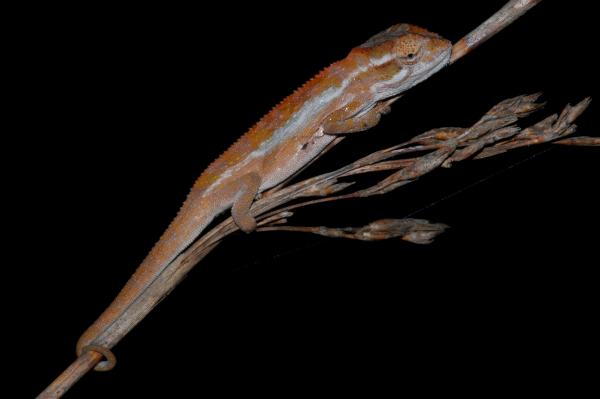
Native to South Africa, this small chameleon is endangered due to habitat loss. Masters color change for camouflage, even more so than most pygmy chameleons.
Chameleons are among the most unique reptiles, famed for their color-changing skin, gripping tails, and independent eye movement. Preserving their diversity is crucial for ecosystem health and reptile conservation worldwide.
animal tags: Chameleon species
We created this article in conjunction with AI technology, then made sure it was fact-checked and edited by a Animals Top editor.